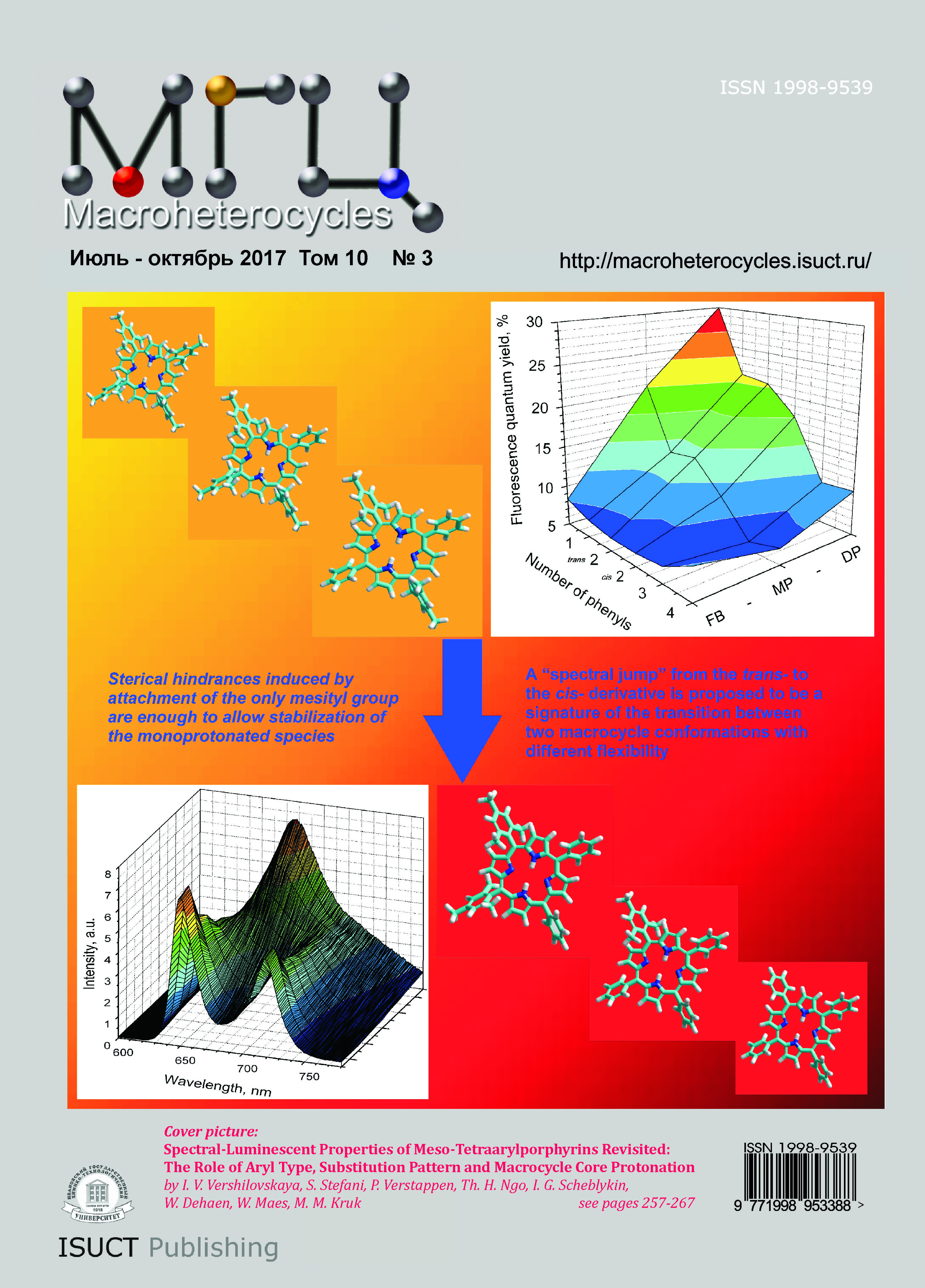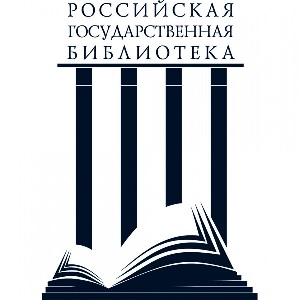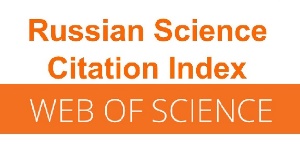Ковалентно связанная диада на основе фталоцианина цинка и метилфеофорбида а: синтез и физико-химические исследования
Аннотация
Впервые синтезирован ковалентный конъюгат на основе металлофталоцианина и производного хлорина е6 путем переэтерификации α-кето метилового эфирного фрагмента метилфеофорбида а 2‑(2‑гидроксиметилбензилокси)-9(10),16(17),23(24)-три-трет-бутилфталоцианинатом цинка(II) в мягких условиях. Диада проявляет панхроматическую природу, ее ЭСП содержит характерные полосы фталоцианинового и феофорбидного хромофоров. Данные 1Н ЯМР спектроскопии в совокупности с теоретическими расчетами говорят о наличии пространственных внутримолекулярных взаимодействий между фталоцианиновым, феофорбидным и спейсерным фрагментами диады, позволяя прогнозировать выраженные нелинейно-оптические свойства, а также характерный перенос энергии от возбужденной субъединицы феофорбида к фталоцианиновому ядру. При возбуждении в видимом диапазоне конъюгат демонстрирует красную флуоресценцию с максимумом при 686 нм, близким к максимуму исходного фталоцианината цинка. Более того, диада эффективно генерирует синглетный кислород и в присутствии поливинилпирролидона (ПВП) в качестве биосовместимого солюбилизатора формирует в физиологическом растворе стабильные мицеллы размером от 40 до 100 нм. Данные наночастицы можно рассматривать в качестве перспективного фотосенсибилизатора третьего поколения для тераностики.
Литература
Lo P.-C., Leng X., Ng D.K.P. Hetero-arrays of porphyrins and phthalocyanines. Coord. Chem. Rev. 2007, 251, 2334-2353.
https://doi.org/10.1016/j.ccr.2007.03.007
Pereira A.M.V.M., Soares A.R.M., Hausmann A., Neves M.G.P.M.S., Tome A.C., Silva A.M.S., Cavaleiro J.A.S., Guldi D.M., Torres T. Distorted fused porphyrin-phthalocyanine conjugates: synthesis and photophysics of supramolecular assembled systems with a pyridylfullerene. Phys. Chem. Chem. Phys. 2011, 13, 11858-11863.
https://doi.org/10.1039/c1cp00016k
Kandhadi J., Kanaparthi R.K., Giribabu L. Germanium(IV) phthalocyanine-porphyrin based hetero trimers: synthesis, spectroscopy and photochemistry. J. Porphyrins Phthalocyanines 2012, 16, 282-289.
https://doi.org/10.1142/S1088424612500319
Yamada Y., Mihara N., Tanaka K. Synthesis of a hetero-dinuclear metal complex in a porphyrin/phthalocyanine four-fold rotaxane. Dalton Trans. 2013, 42, 15873-15876.
https://doi.org/10.1039/c3dt51043c
Maligaspe E., Kumpulainen T., Lemmetyinen H., Tkachenko N.V., Subbaiyan N.K., Zandler M.E., D'Souza F. Ultrafast singlet-singlet energy transfer in self-assembled via metal-ligand axial coordination of free-base porphyrin-zinc phthalocyanine and free-base porphyrin-zinc naphthalocyanine dyads. J. Phys. Chem. A 2010, 114, 268-277.
https://doi.org/10.1021/jp908115e
Jacobs R., Stranius K., Maligaspe E., Lemmetyinen H., Tkachenko N.V., Zandler M.E., D'Souza F. Syntheses and excitation transfer studies of near-orthogonal free-base porphyrin−ruthenium phthalocyanine dyads and pentad. Inorg. Chem. 2012, 51, 3656-3665.
https://doi.org/10.1021/ic202574q
KC C.B., Ohkubo K., Karr P.A., Fukuzumi S., D'Souza F. A 'two-point' bound zinc porphyrin-zinc phthalocyanine-fullerene supramolecular triad for sequential energy and electron transfer. Chem. Commun. 2013, 49, 7614-7616.
https://doi.org/10.1039/c3cc43510e
KC C.B., Lim G.N., Karr P.A., D'Souza F. Supramolecular tetrad featuring covalently linked bis(porphyrin)-phthalocyanine coordinated to fullerene: construction and photochemical studies. Chem. Eur. J. 2014, 20, 7725-7735.
https://doi.org/10.1002/chem.201402402
KC C.B., Lim G.N., D'Souza F. Multi-modular, tris(triphenylamine) zinc porphyrin-zinc phthalocyanine-fullerene conjugate as a broadband capturing, charge stabilizing, photosynthetic 'antenna-reaction center' mimic. Nanoscale 2015, 7, 6813-6826.
https://doi.org/10.1039/C5NR00354G
Zhang Y., Xue Z., Qi D., Wang K., Liu H., Jiang J. Mixed phthalocyanine-porphyrin-fused conjugated pentameric nanoarrays. Chem. Eur. J. 2017, 23, 15017-15021.
https://doi.org/10.1002/chem.201703787
Zhang D., Zhu M., Zhao L., Zhang J., Wang K., Qi D., Zhou Y., Bian Y., Jiang J. Ratiometric fluorescent detection of Pb2+ by FRET-based phthalocyanine-porphyrin dyads. Inorg. Chem. 2017, 56, 14533-14539.
https://doi.org/10.1021/acs.inorgchem.7b02261
Qi D., Zhang J., Zhang D., Zhu M., Gong L., Su C., Lu W., Bian Y., Jiang J. A phthalocyanine-porphyrin triad for ratiometric fluorescent detection of Lead(II) ions. Dyes Pigm. 2020, 173, 107941.
https://doi.org/10.1016/j.dyepig.2019.107941
Liu W., Wang K., Wang C., Liu W., Pan H., Xiang Y., Qi D., Jiang J. Mixed phthalocyanine-porphyrin-based conjugated microporous polymers towards unveiling the activity origin of Fe-N4 catalysts for the oxygen reduction reaction. J. Mater. Chem. A 2018, 6, 22851-22857.
https://doi.org/10.1039/C8TA08173E
Kameyama K., Satake A., Kobuke Y. Light-harvesting composites of directly connected porphyrin-phthalocyanine dyads and their coordination dimers. Tetrahedron Lett. 2004, 45, 7617-7620.
https://doi.org/10.1016/j.tetlet.2004.08.101
Feng X., Ding X., Chen L., Wu Y., Liu L., Addicoat M., Irle S., Dong Y., Jiang D. Two-dimensional artificial light-harvesting antennae with predesigned high-order structure and robust photosensitising activity. Sci. Rep. 2016, 6, 32944.
https://doi.org/10.1038/srep32944
KC C.B., Stranius K., D'Souza P., Subbaiyan N.K., Lemmetyinen H., Tkachenko N.V., D'Souza F. Sequential photoinduced energy and electron transfer directed improved performance of the supramolecular solar cell of a zinc porphyrin−zinc phthalocyanine conjugate modified TiO2 surface. J. Phys. Chem. C 2013, 117, 763-773.
https://doi.org/10.1021/jp308923e
Wang X., Hu J., Wang P., Zhang S., Liu Y., Xiong W., Liu Q. Analysis of the in vivo and in vitro effects of photodynamic therapy on breast cancer by using a sensitizer, Sinoporphyrin Sodium. Theranostics 2015, 5, 772-786.
https://doi.org/10.7150/thno.10853
Martinez De Pinillos Bayona A., Mroz P., Thunshelle C., Hamblin M.R. Design features for optimization of tetrapyrrole macrocycles as antimicrobial and anticancer photosensitizers. Chem. Biol. Drug. Des. 2017, 89, 192-206.
https://doi.org/10.1111/cbdd.12792
Josefsen L.B., Boyle R.W. Unique diagnostic and therapeutic roles of porphyrins and phthalocyanines in photodynamic therapy, imaging and theranostics. Theranostics 2012, 2, 916-966.
https://doi.org/10.7150/thno.4571
Krasia-Christoforou T., Georgiou T.K. Polymeric theranostics: using polymer-based systems for simultaneous imaging and therapy. J. Mater. Chem. B 2013, 1, 3002-3025.
https://doi.org/10.1039/c3tb20191k
Zhao L., Kim T.-H., Ahn J.-C., Kim H.-W., Kim S.Y. Highly efficient "theranostics" system based on surfacemodified gold nanocarriers for imaging and photodynamic therapy of cancer. J. Mater. Chem. B 2013, 1, 5806-5817.
https://doi.org/10.1039/c3tb20933d
Ryan A.A., Senge M.O. How green is green chemistry? Chlorophylls as a bioresource from biorefineries and their commercial potential in medicine and photovoltaics. Photochem. Photobiol. Sci. 2015, 14, 638-660.
https://doi.org/10.1039/C4PP00435C
Tolbin A.Yu., Pushkarev V.E., Tomilova L.G. The selective synthesis of clamshell-type binuclear phthalocyanines. Mendeleev Commun. 2009, 19, 78-80.
https://doi.org/10.1016/j.mencom.2009.03.008
Tolbin A.Yu., Pushkarev V.E., Nikitin G.F., Tomilova L.G. Heteroligand and heteronuclear clamshell-type phthalocyanines: selective preparation, spectral properties, and synthetic application. Tetrahedron Lett. 2009, 50, 4848-4850.
https://doi.org/10.1016/j.tetlet.2009.06.048
Pushkarev V.E., Tolbin A.Yu., Borisova N.E., Trashin S.A., Tomilova L.G. A3B type phthalocyanine based homoleptic lanthanide (III) double-decker π-radical complexes bearing functional hydroxy groups: synthetic approach, spectral properties and electrochemical study. Eur. J. Inorg. Chem. 2010, 5254-5262.
https://doi.org/10.1002/ejic.201000511
Pushkarev V.E., Tolbin A.Yu., Zhurkin F.E., Borisova N.E., Trashin S.A., Tomilova L.G., Zefirov N.S. Sandwich double-decker lanthanide(III) "intracavity" complexes based on clamshell-type phthalocyanine ligands: synthesis, spectral, electrochemical and spectroelectrochemical investigations. Chem. Eur. J. 2012, 18, 9046-9055.
https://doi.org/10.1002/chem.201200361
Tolbin A.Yu., Pushkarev V.E., Shulishov E.V., Tomilova L.G. Directed synthesis of bi- and polynuclear clamshell-type phthalocyanines and their physico-chemical investigations. J. Porphyrins Phthalocyanines 2012, 16, 341-350.
https://doi.org/10.1142/S108842461250037X
Tolbin A.Yu., Pushkarev V.E., Balashova I.O., Brel V.K., Gudkova Yu.I., Shestov V.I., Tomilova L.G. Synthesis of phthalocyanine compounds bearing 2 (diethoxyphosphoryl)-4-methylpenta-1,3-dienyl functional groups. J. Porphyrins Phthalocyanines 2013, 17, 343-350.
https://doi.org/10.1142/S1088424613500296
Tolbin A.Yu., Pushkarev V.E., Balashova I.O., Tomilova L.G. Synthesis of a stable J-type dimer based on the 2-hydroxy-9(10),16(17),23(24)-tri(tert-butyl)phthalocyanine zinc complex. Mendeleev Commun. 2013, 23, 137-139.
https://doi.org/10.1016/j.mencom.2013.05.005
Tolbin A.Yu., Pushkarev V.E., Balashova I.O., Dzuban A.V., Tarakanov P.A., Trashin S.A., Tomilova L.G., Zefirov N.S. A highly stable double-coordinated 2-hydroxy-tri(tert-butyl)-substituted zinc phthalocyanine dimer: synthesis, spectral study, thermal stability and electrochemical properties. New J. Chem. 2014, 38, 5825-5831.
https://doi.org/10.1039/C4NJ00692E
Tolbin A.Yu., Pushkarev V.E., Sheinin V.B., Shabunin S.A., Tomilova L.G. Self-assembly of 2-hydroxy-tri-tert-butylphthalocyaninato zinc into J-type dimer: UV-vis, DFT and spectropotentiometric study. J. Porphyrins Phthalocyanines 2014, 18, 155-161.
https://doi.org/10.1142/S1088424613501186
Balashova I.O., Pushkarev V.E., Shestov V.I., Tomilova L.G., Koifman O.I., Ponomarev G.V. Synthesis and spectral properties of phthalocyanine-methylpheophorbide a covalently linked dyad. Macroheterocycles 2015, 8, 233-238.
https://doi.org/10.6060/mhc150767p
Tolbin A.Yu., Pushkarev V.E., Tomilova L.G., Zefirov N.S. Monohydroxyphthalocyanines as potential precursors to create nanoscale optical materials. J. Porphyrins Phthalocyanines 2017, 21, 128-134.
https://doi.org/10.1142/S1088424617500213
Tolbin A.Yu., Pushkarev V.E., Sedova M.V., Maklakov S.S., Tomilova L.G. Aggregation of slipped-cofacial phthalocyanine J-type dimers: Spectroscopic and AFM study. Spectrochim. Acta A: Mol. Biomol. Spectrosc. 2018, 205, 335-340.
https://doi.org/10.1016/j.saa.2018.07.052
Korostei Yu.S., Tolbin A.Yu., Dzuban A.V., Pushkarev V.E., Sedova M.V., Maklakov S.S., Tomilova L.G. Monomeric aluminum complex based on A3B-type mono-hydroxy-functionalized phthalocyanine and its stable supramolecular J-type dimer: selective synthesis and physicochemical properties. Dyes Pigm. 2018, 149, 201-211.
https://doi.org/10.1016/j.dyepig.2017.09.066
Korostei Yu.S., Tarasova V.G., Pushkarev V.E., Borisova N.E., Vorobiev A.Kh., Tomilova L.G. A sandwich clamshell-type phthalocyaninato quadruple-decker binuclear lutetium(III) complex: Synthesis and spectral properties. Dyes Pigm. 2018, 159, 573-575.
https://doi.org/10.1016/j.dyepig.2018.07.030
Korostei Yu.S., Pushkarev V.E., Tolbin A.Yu., Dzuban A.V., Chernyak A.V., Konev D.V., Medvedeva T.O., Talantsev A.D., Sanina N.A., Tomilova L.G. Sandwich quadruple-decker binuclear lanthanide(III) complexes based on clamshell-type phthalocyanine ligand: synthesis and physicochemical studies. Dyes Pigm. 2019, 170, 107648.
https://doi.org/10.1016/j.dyepig.2019.107648
Tolbin A.Yu., Brel V.K., Tarasevich B.N., Pushkarev V.E. Low-symmetry A3B type pentachlorocyclotriphosphazene substituted phthalocyanine with improved nonlinear optical properties: Synthesis, spectroscopic and ab initio/(TD)DFT study. Dyes Pigm. 2020, 174, 108095.
https://doi.org/10.1016/j.dyepig.2019.108095
Patent RF 2276976, 2006.
Patent RF 2330037, 2008.
Patent RF 2490273, 2013.
Tolbin A.Yu., Tomilova L.G., Zefirov N.S. Structural modification of unsymmetrically substituted monophthalocyanines by nucleophilic reactions. Russ. Chem. Bull., Int. Ed. 2005, 54, 2099-2103.
https://doi.org/10.1007/s11172-006-0083-8
Seybold P.G., Gouterman M., Callis J. Calorimetric, photometric and lifetime determinations of fluorescence yields of fluorescein dyes. Photochem. Photobiol. 1969, 9, 229-242.
https://doi.org/10.1111/j.1751-1097.1969.tb07287.x
Fery-Forgues S., Lavabre D. Are fluorescence quantum yields so tricky to measure? A demonstration using familiar stationery products. J. Chem. Educ. 1999, 76, 1260-1264.
https://doi.org/10.1021/ed076p1260
Zenkevich E., Sagun E., Knyukshto V., Shulga A., Mironov A., Efremova O., Bonnett R., Songca S.P., Kassem M. Photophysical and photochemical properties of potential porphyrin and chlorin photosensitizers for PDT. J. Photochem. Photobiol. B: Biol. 1996, 33, 171-180.
https://doi.org/10.1016/1011-1344(95)07241-1
Laikov D.N. Fast evaluation of density functional exchange-correlation terms using the expansion of the electron density in auxiliary basis sets. Chem. Phys. Lett. 1997, 281, 151-156.
https://doi.org/10.1016/S0009-2614(97)01206-2
Ernzerhof M., Scuseria G.E. Assessment of the Perdew-Burke-Ernzerhof exchange-correlation functional. J. Chem. Phys. 1999, 110, 5029-5036.
https://doi.org/10.1063/1.478401
Laikov D.N. A new class of atomic basis functions for accurate electronic structure calculations of molecules. Chem. Phys. Lett. 2005, 416, 116-120.
https://doi.org/10.1016/j.cplett.2005.09.046
Tolbin A.Yu. The control system of the quantum-chemical calculations - EasyQuanto. Certificate of state registration of computer program 2015619026 (RU), 2015.
Schmidt M.W., Baldridge K.K., Boatz J.A., Elbert S.T., Gordon M.S., Jensen J.H., Koseki S., Matsunaga N., Nguyen K.A., Su S., Windus T.L., Dupuis M., Montgomery Jr. J.A. General atomic and molecular electronic structure system. J. Comput. Chem. 1993, 14, 1347-1363.
https://doi.org/10.1002/jcc.540141112
Bayraktar H., Turalioglu F.S. A Kriging-based approach for locating a sampling site-in the assessment of air quality. Stoch. Environ. Res. Risk Assess. 2005, 19, 301-305.
https://doi.org/10.1007/s00477-005-0234-8
Ngoy B.P., May A.K., Mack J., Nyokong T. Effect of bromination on the optical limiting properties at 532 nm of BODIPY dyes with p-benzyloxystyryl groups at the 3,5-positions. J. Mol. Struct. 2019, 1175, 745-753.
https://doi.org/10.1016/j.molstruc.2018.08.012
Gieseking R.L.M. Third-order nonlinear optical properties of ag nanoclusters: connecting molecule-like and nanoparticle-like behavior. Chem. Mater. 2019, 31, 6850-6859.
https://doi.org/10.1021/acs.chemmater.9b01290
Blanco E., Shen H., Ferrari M. Principles of nanoparticle design for overcoming biological barriers to drug delivery. Nat. Biotechnol. 2015, 33, 941-951.
https://doi.org/10.1038/nbt.3330
Krot A.R., Stroganova J.D., Sergeeva I.A., Fedorova K.V., Korostey J.S., Balashova I.O., Pushkarev V.E., Tarakanov P.A. The study of the stability of photosensitizers based on tetrapyrrolic aluminum, magnesium and zinc complexes at various factors. Memoirs of the Faculty of Physics. 2018, 3, 1830702.
















